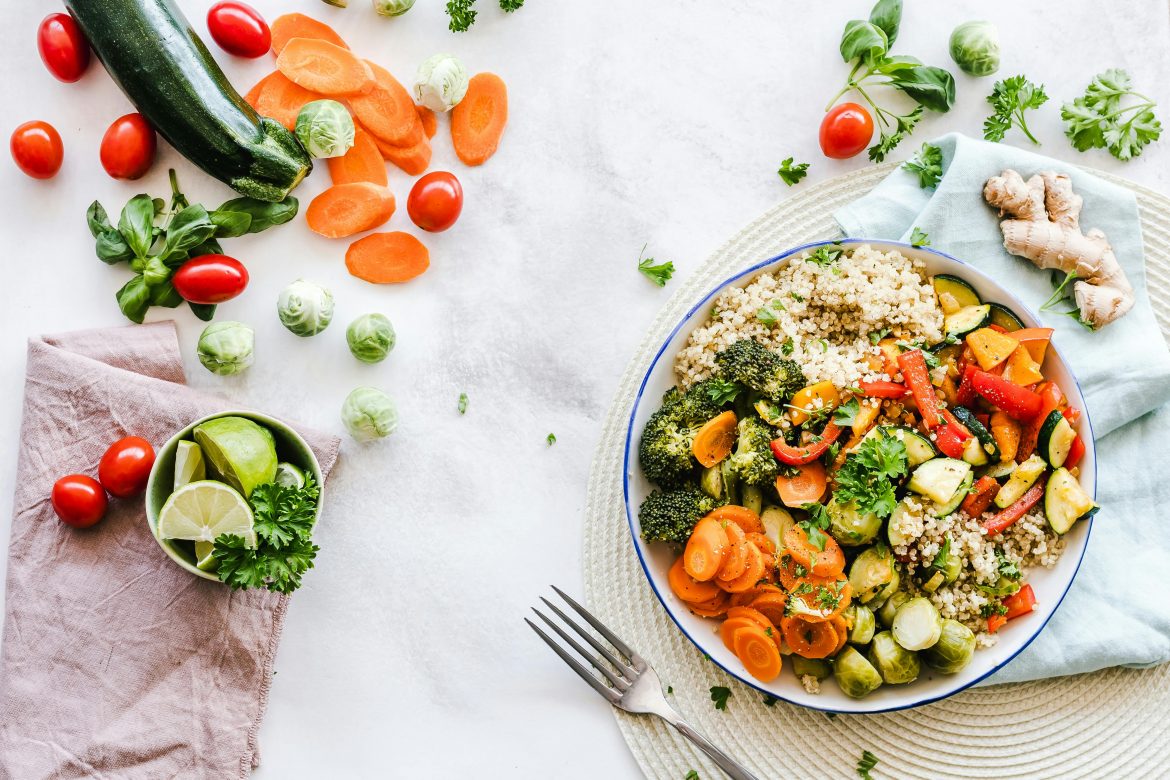With so many individuals becoming more and more health-conscious, plant-based eating patterns and products have grown with more people embracing the preference of foods derived primarily from plants. This goes beyond fruit and hearty vegetables but also extends to nuts, seeds, whole grains, beans, and legumes. What’s appealing about this approach is that you don’t have to give up meat or dairy entirely and it does not mean you’re vegan or vegetarian, rather, you are proportionately choosing more of your foods from plant sources.
Why choose plant-based?
You might be wondering, what’s all the buzz about? Well, the evidence speaks for itself. Numerous studies, including research on the Mediterranean diet and various vegetarian approaches, show compelling health benefits. The Mediterranean diet, for instance, is linked to reduced risks of heart disease, diabetes, and certain cancers, and even boosts mental and physical function in older adults. Meanwhile, vegetarian diets are associated with lower risks of coronary heart disease, high blood pressure, diabetes, and increased longevity.
Plant-based diets offer all the necessary protein, fats, carbohydrates, vitamins, and minerals for optimal health, and are often higher in fiber and phytonutrients. However, some vegans may need to add a supplement (specifically vitamin B12) to ensure they receive all the nutrients required.
8 easy ways to start following a plant-based diet:
According to an article published in Harvard Health Publishing by Kathy McManus – Director of the Department of Nutrition and Director of the Dietetic Internship at the Brigham and Women’s Hospital, a teaching affiliate of Harvard Medical School in Boston.
If you’re considering following a plant-based diet, here are 8 simple ways to help you get started.
Consume a lot of vegetables. At lunch and dinner, put half of your plate on veggies. When selecting your veggies, be sure to use a wide variety of colours. Eat veggies as a snack with guacamole, salsa, or hummus.
Reframe your perception of meat. Have a lower quantity. Make a garnish out of it rather than the focal point.
Select healthful fats. Extra-healthy options include the fats found in olive oil, avocados, seeds, and nuts.
Make a vegetarian supper at least one evening every week. Center these dinners on vegetables, nutritious grains, and legumes.
For breakfast, serve whole carbohydrates. Start with barley, buckwheat, quinoa, or oatmeal. Next, include some fresh fruit and nuts or seeds.
Opt for greens. Every day, try a range of leafy greens, including spinach, kale, collards, Swiss chard, and other greens. To retain their nutrition and flavour, stir-fry, grill, braise, or steam-train.
Combine a salad with an entrée. Add salad greens, such as Bibb, romaine, spinach, or red leafy greens, to a bowl. Add tofu, fresh herbs, beans, and peas, as well as a variety of other veggies.
For dessert, have some fruit. Your after-meal hunger for something sweet can be satiated by a crisp apple, a juicy and ripe peach, or a cool piece of watermelon.
Foods to minimise or avoid
While transitioning to a plant-based lifestyle, the focus shifts towards reducing or eliminating animal-derived foods like meat and fish. However, the goal isn’t strict elimination; instead, it’s about emphasising plant foods over others.
It’s essential to note that “plant-based” doesn’t automatically equate to “healthy.” Processed and packaged foods labeled as plant-based—such as refined sugars, white flour, or certain vegetable fats—should be consumed sparingly, if at all. The emphasis remains on whole, nutrient-dense plant foods for optimal health.
By prioritising whole, plant-derived foods and minimising processed options, you’ll nourish your body while embracing a more sustainable approach to eating.
ALSO SEE: 8 Teas that are great for your health
Feature image: Unsplash

